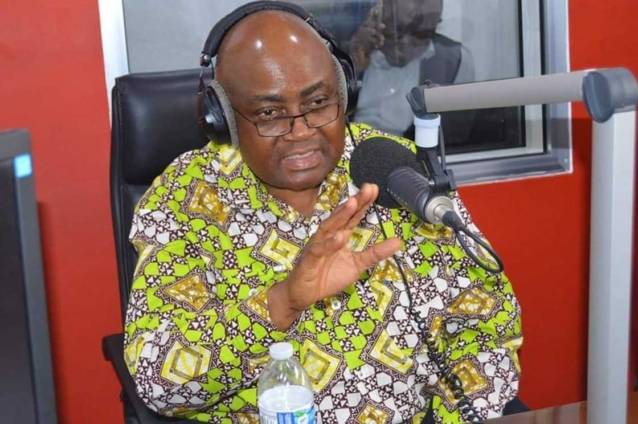Ben Ephson, a seasoned Ghanaian journalist, pollster, and Managing Editor of the Daily Dispatch newspaper, has offered insights into why his prediction for the 2024 general elections did not materialize. Renowned for his accuracy in election predictions over the years, Mr. Ephson's streak of success hit another snag following the 2024 elections, marking a notable miss since his incorrect forecast for the 2016 polls.
For the 2024 elections, he had projected a victory for the New Patriotic Party (NPP). However, the National Democratic Congress (NDC) emerged victorious, leaving many questioning the reliability of political polling in Ghana. Speaking on Joy Prime's Prime Morning show after the elections, Mr. Ephson pointed to voter apathy within the NPP as a critical factor that his analysis could not detect ahead of time.
He explained that apathy among party members and executives, which played a significant role in the NPP’s defeat, is one of the most challenging aspects of polling to measure. According to him, the NPP failed to mobilize its supporters effectively, leading to a considerable drop in voter turnout for the party.
“Over the past 23 years, I’ve conducted eight polls, and I’ve missed only two. The challenge in both cases has been gauging apathy. For example, in the 2024 elections, the NPP’s numbers dropped significantly, particularly in their stronghold regions, while the NDC maintained their voter base from 2020,†he stated.
He further elaborated on the situation in the Ashanti Region, traditionally seen as an NPP stronghold, where the party’s vote count declined sharply. “In 2020, the NPP garnered impressive numbers in the Ashanti Region, but in 2024, their votes dropped by over 1.2 million. That level of voter apathy is a problem polling cannot accurately predict,†he added.
Mr. Ephson likened the situation to the 2016 U.S. presidential elections, where pollsters failed to anticipate the impact of low voter turnout among key Democratic groups, leading to Hillary Clinton's loss to Donald Trump. He noted that Clinton’s prior remarks perceived as disparaging to Black voters may have contributed to apathy within that demographic, which ultimately affected her performance.
“In Ghana, the same principle applies. If voters feel disconnected or demoralized, they might stay away from the polls. That’s exactly what happened with the NPP in 2024,†he said.
The veteran pollster also highlighted that had the NPP managed to mobilize the remaining 30% of its voter base who abstained, their candidate, Dr. Mahamudu Bawumia, would likely have secured victory. “The NDC’s numbers remained consistent with the 2020 elections. This means the NPP’s significant drop in votes, especially in key regions like Ashanti, made all the difference,†he said.
Mr. Ephson maintained that while polling provides a snapshot of voter intentions at a given time, it cannot fully account for last-minute changes in voter behavior or sentiments, particularly apathy. He admitted this limitation and called for a deeper understanding of voter psychology to improve the accuracy of future polls.
The unexpected election outcome has sparked conversations about the effectiveness of political campaigns and voter engagement strategies. Some analysts believe the NPP's inability to address internal discontent and dissatisfaction among its members may have contributed to their poor showing.
Meanwhile, Mr. Ephson defended the integrity of his polling process, emphasizing that his predictions are based on rigorous analysis of data and voter patterns. He urged political parties to focus more on grassroots mobilization and addressing voter concerns to ensure robust turnout during elections.
Looking ahead, the pollster expressed optimism about refining his methods to incorporate variables like voter apathy. He also encouraged political parties to prioritize consistent engagement with their supporters to mitigate the effects of disillusionment.
In Ghana’s 2024 elections, the NDC’s victory solidified their dominance, with reports indicating they won 185 parliamentary seats, while the NPP secured 77. The remaining four seats went to independent candidates. Several seats, however, remain mired in disputes.
Mr. Ephson’s latest polling miss serves as a reminder of the unpredictable nature of elections and the complexities of accurately predicting voter behavior. As political parties prepare for future contests, addressing the underlying issues that drive voter apathy could prove pivotal in shaping electoral outcomes.
Despite the challenges, Mr. Ephson remains a prominent figure in Ghanaian political analysis, with his insights continuing to contribute to national discourse on elections and governance.




No comments yet
Be the first to share your thoughts!